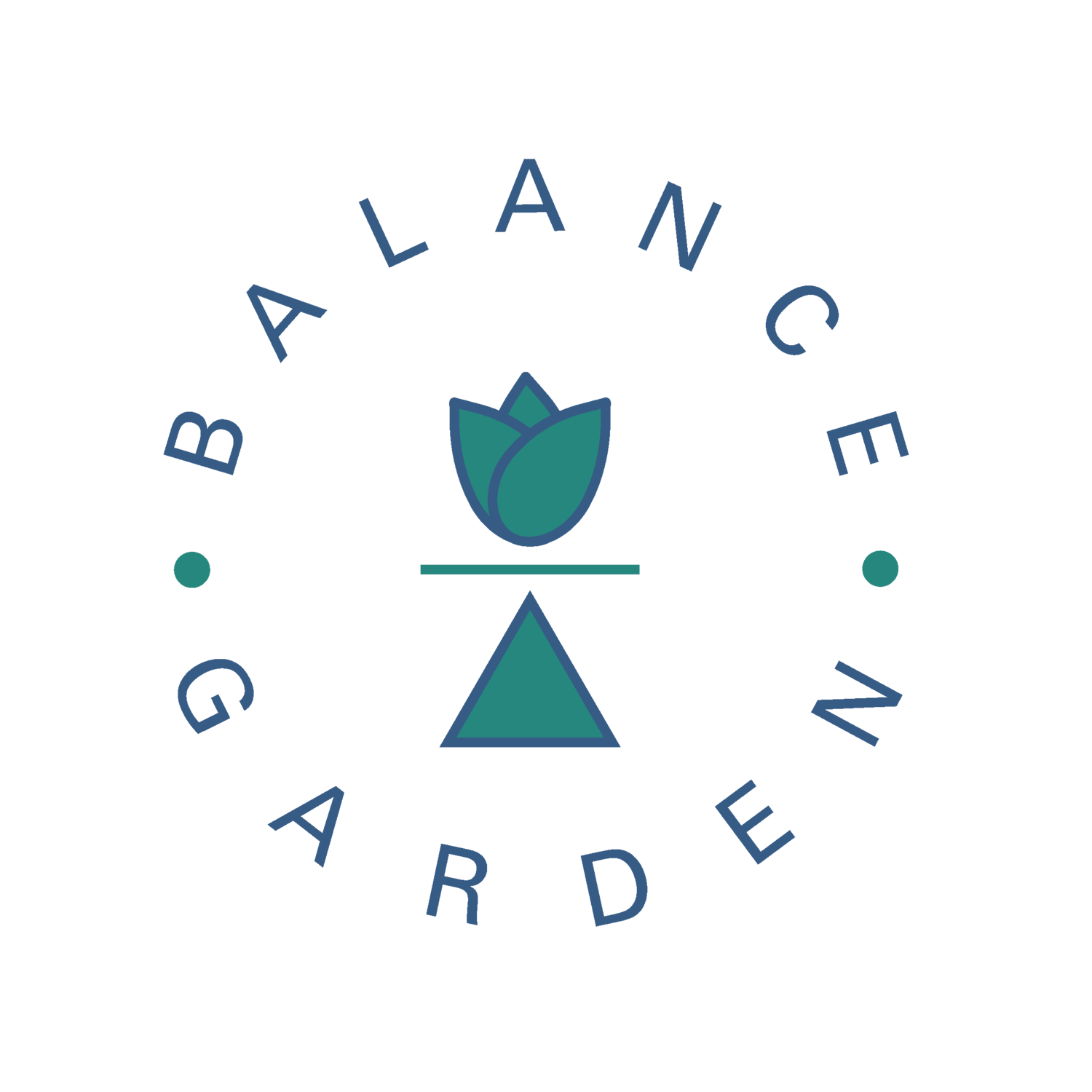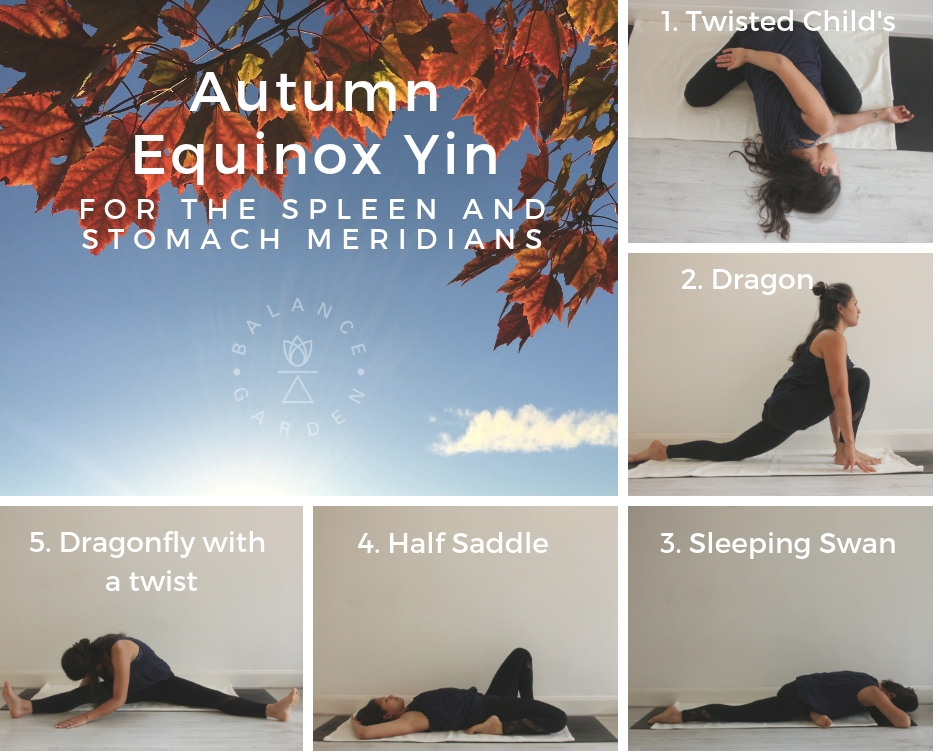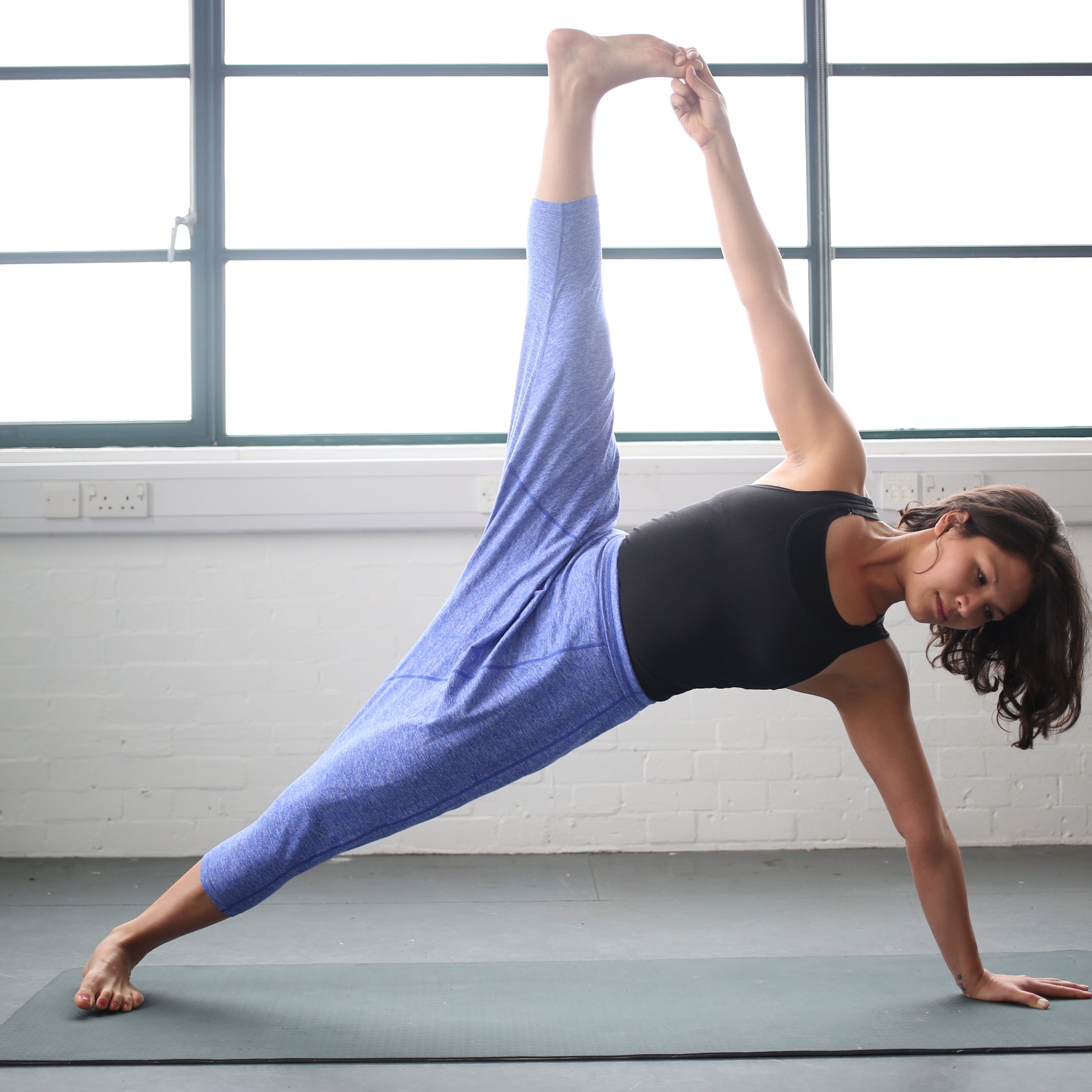Autumn Equinox Yin
/Words and sequence by Jasmine Pradhan
If you’re new to Yin Yoga and the concepts behind it, I suggest you have a quick read of this and this to familiarise yourself with its basic tenets.
Yesterday was the Autumn Equinox. The sun has crossed the celestial equator and we’ve officially transitioned from summer into autumn. This point in the calendar (like others at different times of the year such as the spring equinox and the solstices) can be treated as a little pause in our unending cycle through the seasons, an opportunity to be still and take stock -as just like our sun, we begin to change course; from the busy whirlwind of summer towards the quieter more introspective last quarter of the year.
Observing the changes in the season and aligning ourselves with the natural rhythm of the world can really help to add structure and understanding to our own internal landscapes. The world is one of dualities - day/night, summer/winter, light/dark, yang/yin, and within ourselves- activity/passivity, effort/ease, happiness/sadness, success/failure etc. These seemingly polar opposites are in fact not static ends of a linear spectrum, but rather they are constantly fluctuating, conversational, and interdependent. We cycle endlessly through these dualities (both in nature and within ourselves) and neither side of the “/” is ‘better’ than the other as each must exist to give the other meaning, but somewhere at the point between the extremes, in the eye of the delicious storm of existence, there is balance, equanimity, and stillness to be found. The more we can make contact with that middle ground, through practices that help to bring us home to ourselves, the easier it becomes to return to our centre in times of challenge or imbalance.
The autumn equinox represents one of these points of balance in our calendar, day and night are of equal length and we are at the tipping point between summer and autumn. To mark this time of transition it makes sense to work with practices and poses that help us to get grounded. To land in our bodies and minds so that we can move forward into the next chapter/season/quarter with clarity, peace, and perspective
This yin sequence is designed to nourish the earth element, connected to the stomach and spleen meridians.
The spleen is an important organ of digestion and acts as a reservoir for our blood, recycling red blood cells and trapping infection with white blood cells. The stomach is the primary organ of digestion and responsible for assimilating and distributing the nutrients from our food. We can support healthy spleen and stomach chi by choosing good foods (this will differ from person to person, but you will probably already have an idea of the food that works in your body and the food that really doesn’t serve it)
When spleen chi is balanced, so are our bodily cycles. As a result, we feel well adjusted, nourished, grounded, and earthily full. There is a sense of feeling at home in ourselves and an ability to be at ease in the world. If our spleen chi is out of balance it may manifest as a feeling of weakness, lethargy, bad digestion, anxiety, and off-centeredness.
stomach Meridian
spleen Meridian
Tips for all postures
We are looking for sensation- not pain. If you feel pain at any point then please come out of the pose and either try again with props to alleviate the pain, or if the pain persists then skip the pose altogether
Soften what doesn’t need to be engaged- including the jaw and face
Keep the mind focused on the breath
Try not to fidget unnecessarily and marinate in the stillness.
Wide Legged Twisted Child’s
Meridians targeted
Spleen (inner legs)
Stomach (front of belly)
Physical Focus
Massages the internal organs
Stretches the spine and the chest
Hold for
3-5 mins/as long as you want on each side
Make it work for you
Knees could be narrower
If the knees are troubling you, consider placing some padding underneath them and/or placing a thin blanket in the knee crease
If it’s too much to have the top arm wrapped behind you, just allow it to rest on the floor.
Dragon Pose
Meridians targeted
Stomach and Spleen (inner legs, hip flexors, belly)
Kidney (lower back)
Gall bladder (outer thigh of front leg)
Physical Focus
Hip opener
Good stretch for quads and hip flexors
Hold for
3-5 mins on each side
Make it work for you
Pad under the back knee for greater comfort
Place a cushion or bolster under back shin to alleviate discomfort in the back ankle
Sleeping Swan
Meridians targeted
Stomach and spleen (back leg)
Gall bladder (front outer thigh/hip)
Physical Focus
Hip opener
Hold for
3-5 mins on each side
Make it work for you
If you experience any pain in the front knee please come out and skip this pose or do reclined eye of the needle instead
Bring the floor closer to you by putting a bolster under the chest
Half Saddle
Meridians targeted
stomach and spleen (front body)
kidney and urinary bladder (lower back)
heart/lung/intestines (arms if overhead)
Physical Focus
Strong quad and hip flexer stretch
Hold for
3-5 mins on each side
Make it work for you
Any pain in the bottom knee - come out and skip this pose
If the bottom ankle is uncomfortable try a rolled blanket under it
A bolster under the spine will reduce the intensity of this pose
Dragonfly with a twist
Meridians targeted
Spleen (inner knees)
Urinary bladder (back of legs)
Gall bladder (side of torso)
Physical Focus
Hip opener
Leg stretch
Lower back stretch
Hold for
3-5 mins on each side
Make it work for you
If the knees are grumbling then put a rolled up blanket under each inner knee
Rest the head on an upended bolster if the neck doesn’t like being unsupported
Jasmine Pradhan is the editor and co-founder of Balance Garden, and is also a London based yoga teacher you can find her on instagram @stretchandthecity









































